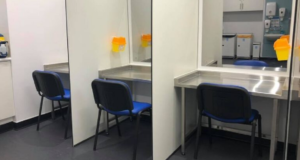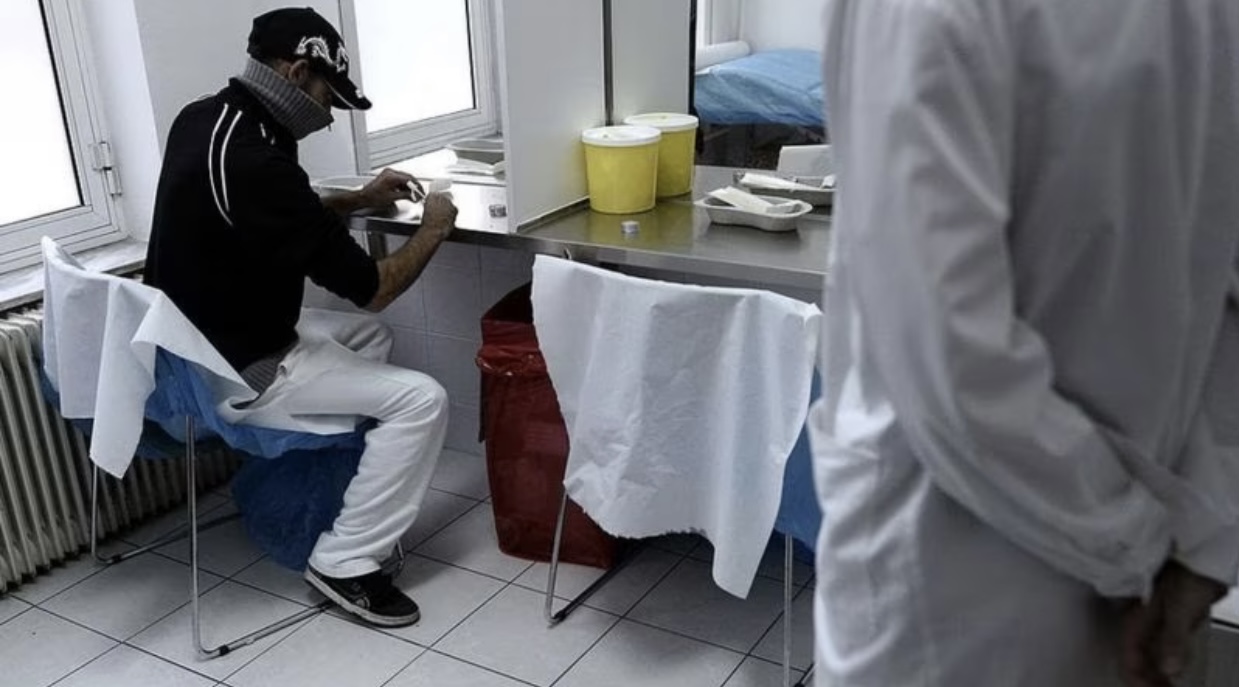Scotland expected to approve first official drug consumption room.
Peter Krykant, a 46-year-old Scotsman, is a campaigner for changes in drug policies. Over two decades ago, he was homeless, injecting heroin and crack cocaine every day.
“When I was young and [drug] dependent and on the streets, there wasn’t any thought of any change,” Krykant told Al Jazeera. “I was homeless at times, subjected to spitting, beatings, wrongful arrests, simply based on my appearance.”
Back then, Krykant and other drug users lacked safe, clean places to consume drugs in both Scotland and the rest of Britain.
However, Glasgow, Scotland’s largest urban area, will make history as the first city in the United Kingdom to host a trial drug consumption room (DCR) if city officials approve the plan at a meeting on Wednesday, as anticipated.

High drug-related death rate
Scotland, the UK’s second-largest nation with devolution since 1999, consistently tops Europe in drug-related deaths. Last year, 1,051 people died due to drug misuse.
Critics have long criticized the Scottish National Party (SNP)-led government for its track record on drug deaths.
This month, however, Scotland’s chief law officer, Lord Advocate Dorothy Bain, effectively gave the green light to the long-awaited pilot project after stating that it would “not be in the public interest to prosecute drug users for simple possession offenses committed within a pilot safer drugs consumption facility.”
Despite drug policy being reserved for the UK government in Westminster, justice falls under the Scottish Parliament’s purview. Under Scotland’s separate legal system, Bain has overall control of prosecution policy.
The UK government, despite opposition from the UK Home Office, stated it wouldn’t hinder the trial’s implementation in Glasgow. Over 400 drug users inject drugs in the city center.
For Krykant, who operated his unofficial DCR in Glasgow from September 2020 to May 2021 using a minibus and a converted ambulance, this was an emotional moment.
“It was very emotional for me,” the campaigner said in response to the lord advocate’s statement and the UK government’s agreement.
“But I won’t cease campaigning, as we require more than just one overdose prevention site in Glasgow.”
More to be done
Many campaigners stress that Scotland must go beyond just establishing DCRs.
“It’s crucial to understand that DCRs alone cannot comprehensively address Scotland’s complex drug crisis,” said Annemarie Ward, CEO of Faces and Voices of Recovery UK.
“The roots of addiction are linked to social determinants of health, economic disparities, and trauma, which also require attention. DCRs mainly prioritize harm reduction and immediate risk mitigation but do not directly lead individuals to recovery or abstinence.
Ward, who was once drug-dependent but has been drug-free for over 25 years, emphasized that it was essential to recognize that “Scotland’s high number of drug-related deaths [were] not just a statistic.”
“It’s about shattered dreams, fractured communities, and a healthcare system overwhelmed by the demand for treatment,” she said.
In Scotland, the divisive issue of independence has entangled in political disputes over the constitution.
By establishing DCRs, Scotland would confront the tragic reality of its drug crisis more profoundly than ever before.
